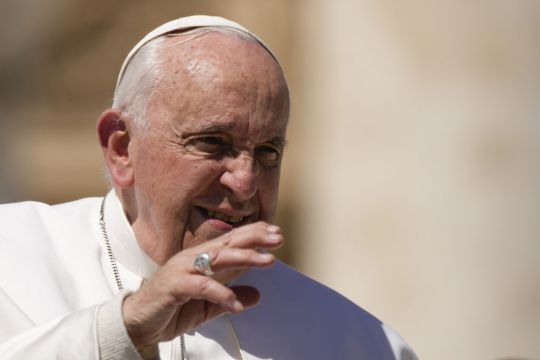Pope Francis has decided to give women the right to vote at an upcoming meeting of bishops, an historic reform that reflects his hopes to give women greater decision-making responsibilities and laypeople more say in the life of the Catholic Church.
Francis approved changes to the norms governing the Synod of Bishops, a Vatican body that gathers the world’s bishops together for periodic meetings, following years of demands by women to have the right to vote.
The Vatican published the modifications he approved, which emphasise his vision for the lay faithful taking on a greater role in church affairs that have long been left to clerics, bishops and cardinals.
This is a significant crack in the stained glass ceiling, and the result of sustained advocacy, activism and the witness of the collaborative “Votes for Catholic Women” campaign, of which the Women’s Ordination Conference played a founding role.
— #OrdainWomen find us on IG @womensordination (@OrdainWomen) April 26, 2023
Advertisement
Catholic women’s groups that have long criticised the Vatican for treating women as second-class citizens immediately praised the move as historic.
“This is a significant crack in the stained-glass ceiling, and the result of sustained advocacy, activism and the witness” of a campaign of Catholic women’s groups demanding the right to vote, said Kate McElwee of the Women’s Ordination Conference, which advocates for women’s ordination.
Ever since the Second Vatican Council, the 1960s meetings that modernised the church, popes have summoned the world’s bishops to Rome for a few weeks at a time to debate particular topics. At the end of the meetings, the bishops vote on specific proposals and put them to the pope, who then produces a document taking their views into account.
Until now, the only people who could vote were men.
But under the new changes, five religious sisters will join five priests as voting representatives for religious orders.
In addition, Francis has decided to appoint 70 non-bishop members of the synod and has asked that half of them be women. They too will have a vote.
The aim is also to include young people among these 70 non-bishop members, who will be proposed to the pope by regional blocs, with Francis making a final decision.
“It’s an important change, it’s not a revolution,” said Cardinal Jean-Claude Hollerich, a senior synod organiser.
The next meeting, scheduled for October 4 to 29, is focused on the very topic of making the church more reflective of, and responsive to, the laity, a process that Francis has championed for years.







